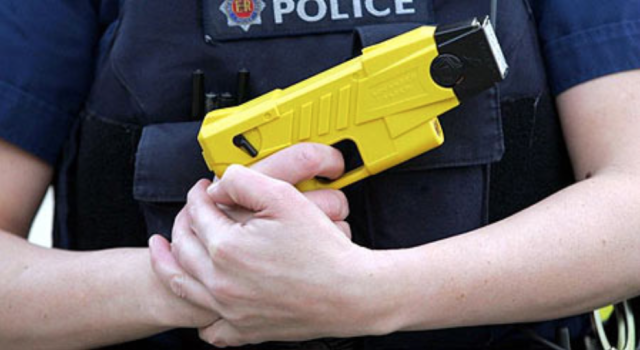Study: Suspects shocked by Taser “more likely” to waive Miranda Rights
Ars Technica » Scientific Method 2016-02-05

(credit: Christopher Paul)
A new study says the obvious: suspects' brains are briefly scrambled when they are on the receiving end of a Taser stun gun and its 50,000-volt delivery. But the study, "TASER Exposure and Cognitive Impairment: Implications for Valid Miranda Waivers and the Timing of Police Custodial Interrogations," (PDF) questions whether suspects who were just shocked have the mental capacity to validly waive their Miranda rights and submit to police questioning.
"TASER-exposed participants resembled patients with mild cognitive impairment, which suggests that not only might our participants be more likely to waive their Miranda rights directly after TASER exposure, but also they would be more likely to give inaccurate information to investigators," reads the study, which appears in the journal Criminology & Public Policy. "Thus, part of our findings implicates a suspect’s ability to issue a valid waiver, whereas another part implicates the accuracy of information he or she might give investigators during a custodial interrogation (e.g., false confessions or statements)."
The paper said that police departments might want to wait to question a suspect for about an hour, the amount of time for brain functioning to return to normal after a suspect is shocked. The Drexel University and Arizona State University researchers said innocent suspects may not appear so innocent right after being shocked: